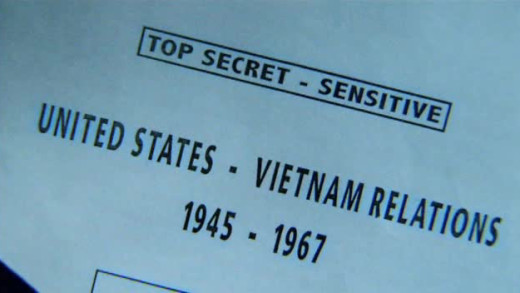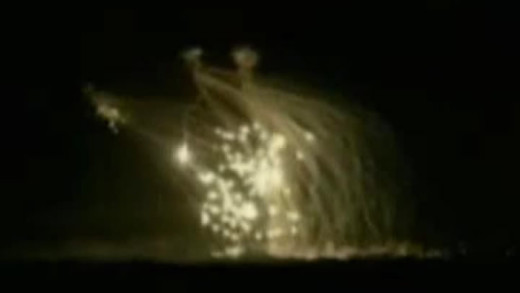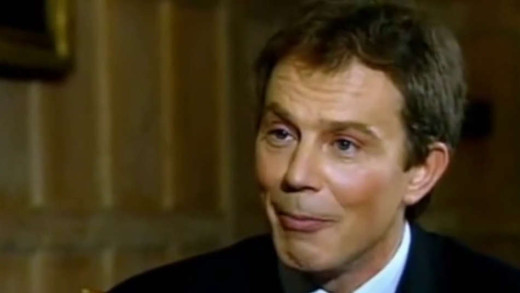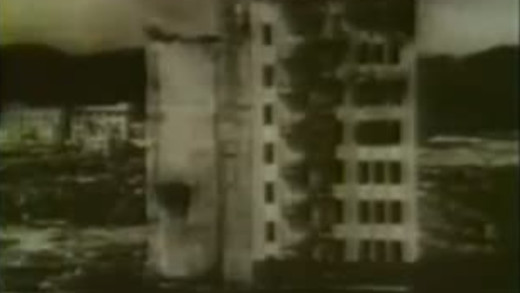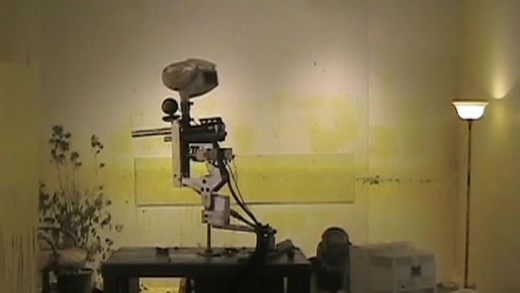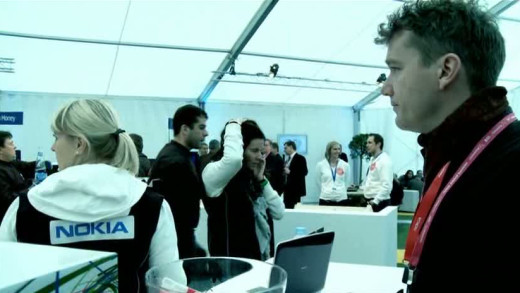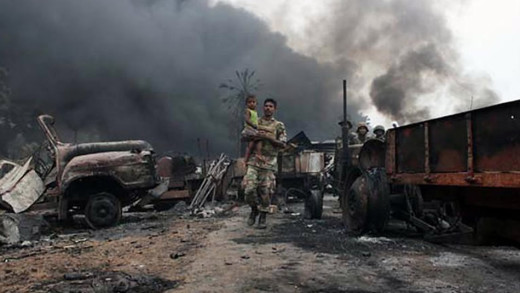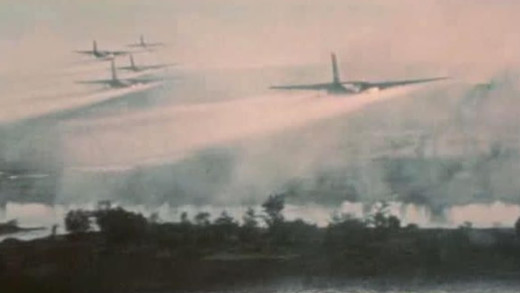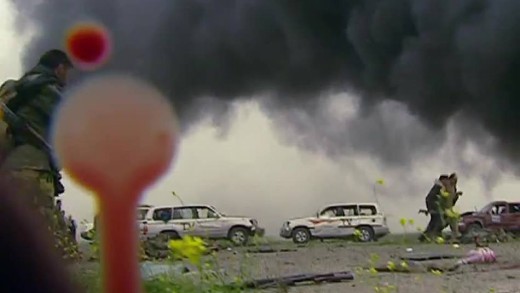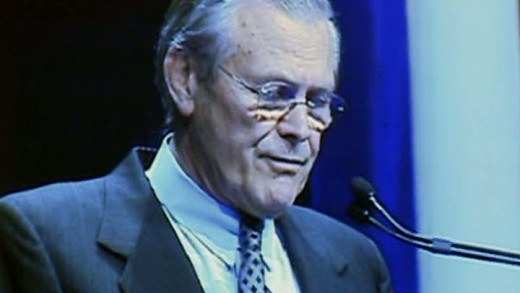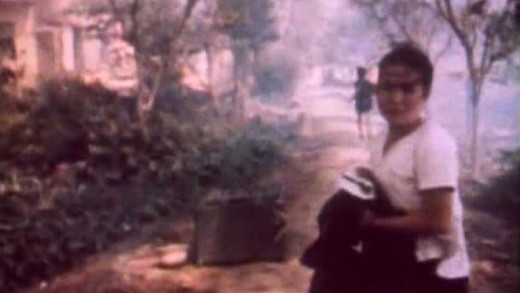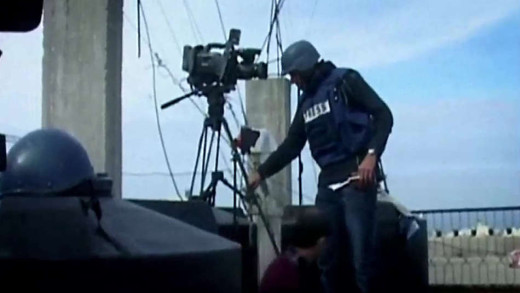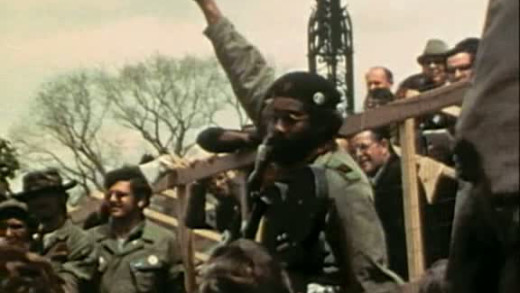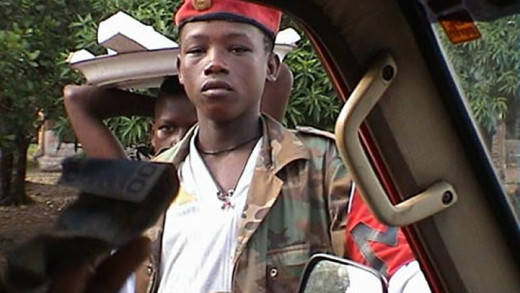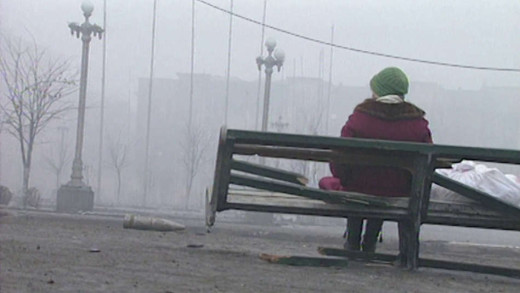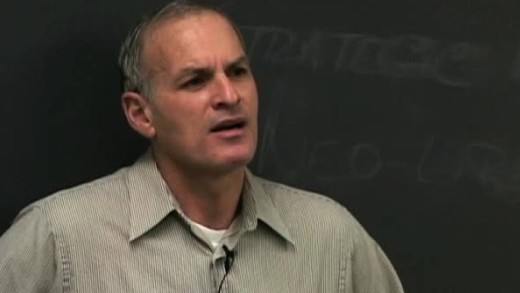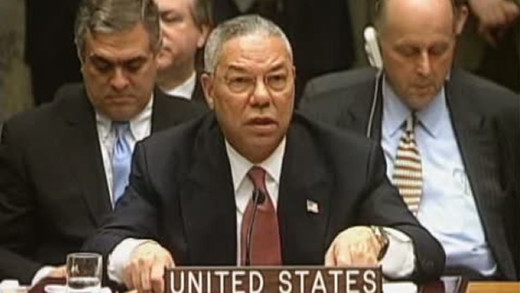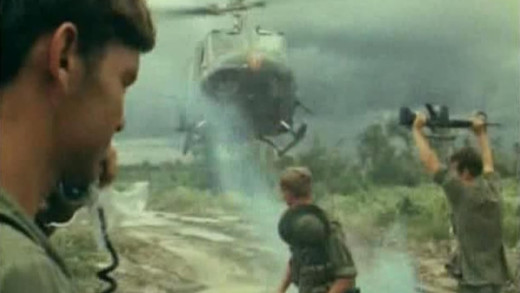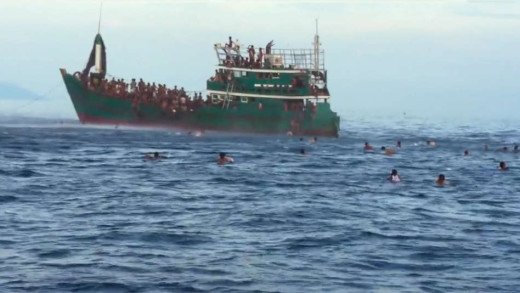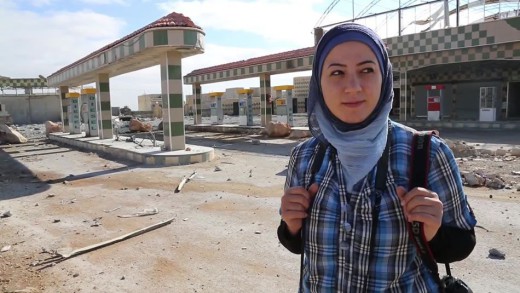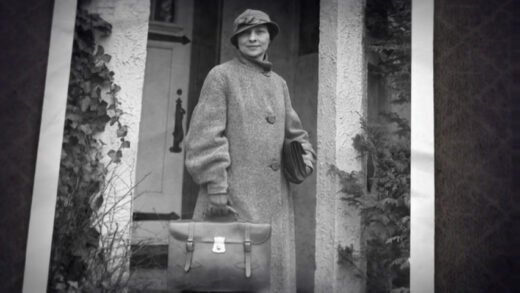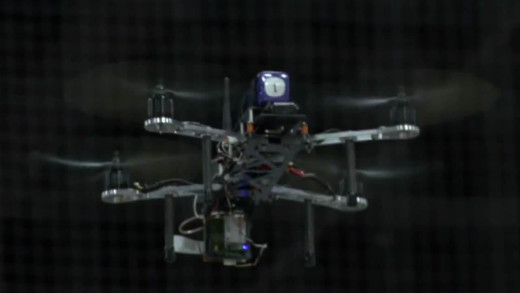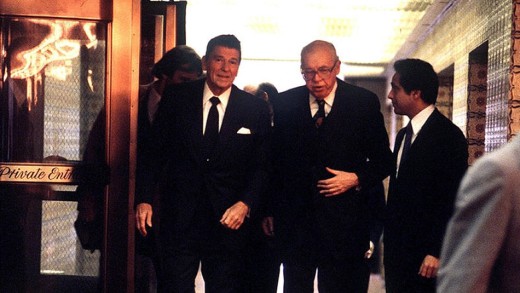In 1971, Daniel Ellsberg shook the United States to its foundations when he leaked top-secret Pentagon documents to the New York Times that showed how five Presidents consistently lied about the Vietnam War. Consequently, National Security Advisor Henry Kissinger called Ellsberg "the most dangerous man in America," who "had to be stopped at all costs." But Ellsberg wasn't stopped. Facing 115 years in prison on espionage and conspiracy charges, he fought back...
This film comprehensively documents the use of chemical weapons--particularly the use of incendiary bombs--along with hordes of other horrific indiscriminate violence against civilians and children by the United States military in the city of Fallujah during the invasion of Iraq in November 2004. The cases portrayed involve the use of white phosphorus and other substances similar to napalm, such as Mark-77, which constitute clearly defined war crimes involving chemical weapons. Interviews with ex-military personnel involved in the Fallujah offensive back up the case for the use of such weapons by the United States, while reporters stationed in Iraq discuss the government's attempts to suppress the news by covert means.
The Killing$ of Tony Blair documents former UK Prime Minister Tony Blair's well-remunerated business interests since leaving government, and his complicity in the thousands of innocent people who have died following his decision to invade Iraq.
Agent Orange was the codename for one of the herbicides and defoliants used by the United States military as part of its chemical warfare program--Operation Ranch Hand--which ran for ten years during the Vietnam War from 1961 to 1971. During this time, the military sprayed nearly 80,000,000 litres of toxic chemical and defoliants mixed with jet fuel in Vietnam, eastern Laos and parts of Cambodia. The supposed goal being to destroy forested and rural land, depriving guerrillas of cover and to induce forced-draft-urbanisation, destroying the ability of peasants to support themselves, forcing them to flee to the cities dominated by US forces, depriving the guerrillas of their rural support base and food supply...
This film makes use of court documents, diplomatic cables and testimony by business figures themselves, as one case of many, in which corporations and indeed governments side with warlords, as good for business, in the endless pursuit of profit. The story revolves around the civil war of Liberia in the 1990s, with the seeds for exploitation and destruction having been planted a century before by the United States, when formally enslaved peoples in Liberia in-turn set up a society of racism, greed and exploitation, exacerbated by western economic powers. Years later, with the presence of Firestone corporation coming to Liberia to exploit vast plantations of rubber for control over the 'market,' the company unfolds as a considerable catalyst for systemic terror, being the forefront for pushing for profits at all costs amongst a brutal civil war; colluding with warlords and corrupt governments in pursuit of this ruthless end. Unfurling as a case study in these methods, this film documents the case that is not so unique but a story amongst many—particularly throughout the so-called third-world—where corporate might and globalisation have extreme consequences...
After the 1973 Paris Agreement and military ceasefire, more than 70,000 soldiers and civilians had been killed in Vietnam. Vietnam -- Still America's War investigates how the Vietnamese populace still have to contend with mines and other legacies of the war, even after the ceasefire, and after the war...
How does the military train the solider of tomorrow? Video games. The most popular games are those that replicate as close as possible the war events as seen on the news. Such games now far outpace the biggest Hollywood blockbuster movies, popular music, and best-selling books, combined. What does this complete immersion in high-tech war mean for our political culture? As well as those directly affected by state violence? What does it mean when the technological sophistication of modern militarism become forms of mass entertainment? Returning Fire profiles three artists and activists that decided these questions needed to be answered. We see how Anne-Marie Schleiner, Wafaa Bilal, and Joseph Delappe moved dissent from the streets to the screens, infiltrating war games in an attempt to break their hypnotic spell. The results ask all of us--gamers and non-gamers alike--to think critically about what it means when drones and remote warfare become computer games and visa versa. Can we reflect on our capacity to empathise with people directly affected by the trauma of real war?
Modern society loves mobile phones -- the selection between different models and gadgets has never been bigger. But the production of this technology has a hidden, dark, bloody side. The main minerals used to produce mobile phones are coming from the mines in the Eastern DR Congo. The Western World is buying these minerals up at a furious rate, financing a bloody civil war which, during the last 15 years, has cost the lives of more than 5 million people. Blood In The Mobile explains the connections between mobile phones and the civil war in the Congo, while technology corporations whitewash the issue to "supply and demand" and claim ignorance...
Sri Lanka's Killing Fields is an investigative two part series about the final weeks of the quarter-century-long civil war in Sri Lanka. The films are made and broadcast as UN Secretary-General Ban Ki-moon faces growing criticism for refusing to launch an investigation into 'credible allegations' that Sri Lankan forces committed war crimes during the the bloody conflict with the rebel group, the Tamil Tigers. With disturbing and distressing descriptions and film of executions, atrocities and the shelling of civilians; the programmes show and investigate devastating video evidence of war crimes—some of the most horrific footage of war ever captured.
The Viewing Booth recounts a unique encounter between a filmmaker and a viewer--exploring the way meaning is attributed to images in today's culture of the screen. In a lab-like location, Maia Levy, a young Jewish American woman, watches videos portraying life in the occupied West Bank, while verbalising her thoughts and feelings in real time. Maia is an enthusiastic supporter of Israel, and the images in the videos, depicting Palestinian life under Israeli military rule, contradict some of her most deep-seated beliefs. Empathy, anger, embarrassment, innate biases, and healthy curiosity all play out before our eyes, as we watch her watch the images created by the occupation. As Maia navigates and negotiates the images, which threaten her worldview, she also reflects on the way she sees them. Her candid and immediate reactions form a one-of-a-kind cinematic testimony to the psychology of the viewer, most especially in the digital era.
From 1974, Hearts and Minds documents the events of the Vietnam War using news clips as well as directly captured footage showing actions and other happenings on the ground by the United States military during the war. The film also follows Vietnamese people themselves as to how the war affects them and why they fight back. Hearts And Minds reveals a racist and self-righteous militarism of the west, ironically in stark similarity to recent happenings in Iraq and elsewhere.
Bitter Lake
Bitter Lake explores how the realpolitik of the West has converged on a mirror image of itself throughout the Middle-East over the past decades, and how the story of this has become so obfuscating and simplified that we, the public, have been left in a bewildered and confused state. The narrative traverses the United States, Britain, Russia and Saudi Arabia—but the country at the centre of reflection is Afghanistan. Because Afghanistan is the place that has confronted political figureheads across the West with the truth of their delusions—that they cannot understand what is going on any longer inside the systems they have built which do not account for the real world. Bitter Lake sets out to reveal the forces that over the past thirty years, rose up and commandeered those political systems into subservience, to which, as we see now, the highly destructive stories told by those in power, are inexorably bound to. The stories are not only half-truths, but they have monumental consequences in the real world.
Is American foreign policy dominated by the idea of military supremacy? Why We Fight examines America's policies regarding making war, most recently the Iraq invasion and what is termed "the Bush doctrine" that includes pre-emptive strikes. This policy has been in the works for many years on reflection of the past wars of the 20th century alone. In this film, a variety of people are asked "Why We Fight?" with a variety of answers, followed by a look at today's U.S. military industrial complex via interviews with individuals involved with it...
In 1975, John Pilger reported the end of the Vietnam War from the American Embassy in Saigon, where the last American troops fled from the roof-top helicopter pad. Twenty years later, he returns to Vietnam to revive the Vietnamese past and present from the plethora of fake Hollywood images which pity the invader, and overshadow one of the most epic struggles of the 20th century.
The War Around Us tells the story of the only two international journalists on the ground in Gaza during Israel's bombardment and invasion of the troubled Palestinian territory over a three-week period in 2008. With never-before-seen footage and gripping personal testimonies, the film bears witness to Israel's ongoing siege of Gaza in the wake of its withdrawal in 2005, and pays tribute to the power of journalism and friendship under conditions of enormous conflict and stress. The result is a human glimpse into wartime reporting and life in one of the most besieged places on Earth.
Sir! NO Sir!
Sir! NO Sir! tells the story of how--from the very start of the war, such as with the Green Berets--there was resentment within the ranks over the difference between the war in Vietnam and (as persons state in the film) the "good wars" that their fathers had fought. In the beginning some simply left the military as individuals, though over time, it became apparent that so many were opposed to the war that they could speak of a movement -- which over time eventually made the military almost inoperable...
Located in Western Africa, Sierra Leone is a nation caught in a struggle between extreme poverty and extreme wealth. While diamond mining provides the bulk of the country's income, most of its people struggle to survive by raising their own crops. In 1991, a rebel group called the Revolutionary United Front formed to take on government and corporate interests in a bid for a more just economy and an end to hunger. At first, the RUF was popular with Sierra Leoneans, many of whom resented the elite seen as corrupt and looked forward to the promises of free education, health care and equitable sharing of diamond revenues. However, as civil broke out, the RUF was brutal and developed a reputation internationally for its terrible cruelty towards civilians, and its widespread use of child soldiers. What ensued was bloody mayhem. Around 70,000 people lost their lives in the nearly 15 years of fighting, while millions lost their homes and many thousands were maimed. The Empire In Africa tells the story behind the brutality, and shines a light on the terrible bloodshed, with the view that future horrors may then end.
Since the late 1980s, BBC news crews have filmed all across the Soviet Union and Russia, but only a tiny portion of their footage was ever used for news reports. The rest was left unseen on tapes in Moscow. Filmmaker Adam Curtis obtains these tapes and uses them to chronicle the collapse of the Soviet Union, the rise of capitalist Russia and its oligarchs, and the effects of this on Russian people of all levels of society, leading to the rise to power of Vladimir Putin, and today's invasions of Ukraine. The films take you from inside the Kremlin, to the frozen mining cities in the Arctic circle, to tiny villages of the vast steppes of Russia, and the strange wars fought in the mountains and forests of the Caucasus.
The Power Principle is a series of films examining the history of the United States and the building of its empire with particular emphasis on the last seventy years of United States foreign policy. The methods that make empire possible are also examined—the politics of fear, the rise of public relations, the 'Mafia Principle' and the reoccurring use of fabled enemies, contrasting the Soviet Union and the Cold War alongside the parallels of today with the "War On Terror". Not only does The Power Principle tie together historical events to revive a common thread, the series may also encourage viewers to reconsider their understanding of historical events and the portrayal of them, showing how those in power play a role in manipulating the collective memory through generations.
American Radical is a film about the life of academic Norman Finkelstein, a son of Holocaust survivors and ardent critic of Israel. Called a lunatic and self-hating Jew by some, and an inspirational figure by others, American Radical also serves to explore the issues at the centre of Palestine and Israel as Finkelstein travels around the world negotiating a voice of realism among impassioned critics and Israeli supporters. Uncompromising, even in the face of a denial of tenure at DePaul University, Finkelstein is revealed as a rare academic figure who puts the pursuit of justice above the security of his career, to expose the brutal reality of the occupation of Palestine.
Reaching into the Orwellian memory hole, War Made Easy exposes the some 50-year pattern of government deception and media spin that has dragged the United States into one war after another from Vietnam to Iraq. Using archival footage of official distortion and exaggeration from LBJ to George Bush, this film reveals how the American news media have uncritically disseminated the pro-war messages of successive governments -- paying special attention to the parallels between the Vietnam war and the war in Iraq...
Using interviews and frontline footage, Vietnam -- The Quiet Mutiny reveals the internal sense of disillusionment and frustration born from the rift between bureaucracy and soldiers, that triggers the withdrawal of the United States military from Vietnam. As the US employs psychological warfare against the Vietnamese, reporter John Pilger finds himself unable to obtain meaningful information from the military—a press conference he attends is nicknamed "the 5 o'clock follies" for the evasive nature of the proceedings. And so it is with the grunts, the "wheels of the green machine," that Pilger finds a very human side to the US presence in Vietnam: soldiers who were once ready to serve their country, now doubtful of their purpose there. Plied with visits from Miss America and ignored by Vice President Spiro Agnew, they experience the war in a way many of their superiors do not.
Chasing Asylum
Chasing Asylum explores the human, political, financial and moral consequences of the Australian Government's "off-shore processing" immigration policy, which is the only country in the world to mandate indefinite detention for adults and children seeking asylum. Since this policy was restarted in 2001, it has grown into an internationally condemned, secretive regime. Inside the detention centres there have been violent deaths, suicides, horrific acts of self-harm, sexual abuse, and mass protests. Composed of footage secretly recorded inside Australia's offshore detention camps, and explored through the eye-witness accounts of social workers and support workers, Chasing Asylum presents the hidden offshore world, where governments choose detention over compassion, a system of depriving vulnerable people of their basic human rights, and spending huge amounts of money keeping it secret and out of the public eye. The result is a sobering overall picture of a system that asks its citizens to abide by rule of law, but shows little regard to do so itself.
Between 1964 and 1973 the United States conducted a secret war in Laos -- dropping over 2 million tons of bombs, making it the most heavily bombed country in history. Millions of 'cluster bombs' did not explode when dropped, leaving the country massively contaminated with "bombies" which are as dangerous now from when they fell over 30 years ago. Bombies documents unexploded cluster bombs through the personal experiences of a group of Laotians and foreigners who go about dismantling the bombs. These weapons are still a standard part of the United States military arsenal and were recently dropped in Kosovo, Afghanistan and Iraq...
Not Anymore: A Story of Revolution is a short film about the Syrian struggle for freedom as experienced by a 32 year old rebel commander, Mowya; and a 24 year old female journalist, Nour; in Aleppo, Syria. The film shows why Syrians are fighting for their freedom, told through the emotional words of two powerful characters whose lives have been torn apart by war.
The Codebreaker charts the story of the ground-breaking cryptoanalyst Elizebeth Smith Friedman, whose work in decoding the messages of organised crime in the United States, bringing down Al Capone and breaking up a Nazi spy ring in South America, lays the foundation for the National Security Agency (NSA). Her work also during World War II was instrumental to ending the war and was classified work and completely unknown until recently.
Just as mobile phones and wireless capability dramatically changed the way technology interacts with modern society, drones--or 'Unmanned Aerial Vehicles'--are set to become the next major influence in technocratic life, directly impacting and seriously expanding the already extensive capabilities of surveillance. Rise Of The Machines takes a look at already developed drone technology and how governments, military and even civilians are rushing to adopt the gadgets which can be purchased off the shelf for just a few hundred dollars and controlled by already existing smart phones. So what will a world of drones look like? And what of the many, serious, unexplored implications on how society will function in a world of drones?
The Secret Government, as its title suggests, is essentially an investigation into the processes, plans, operations and persons responsible for systemic abuses of power at senior levels of the United States government during the 1980s. The film covers multiple covert operations and secret projects, but takes a particular focus on the Iran–Contra affair of 1986, where Ronald Regan secretly facilitated the illegal sale of arms to Iran—which was the subject of an arms embargo at the time—to support a right-wing terrorist group called "The Contras," and also make obscene profits from the sale of such weapons. Transported to the political happenings of today, The Secret Government is a call to remember history, and see that mass profits from weapons dealing running covert/secret wars were a reality then, and now, as well as to reveal just how far institutionalised propaganda and obfuscation works to conceal these home truths, still generations later.
